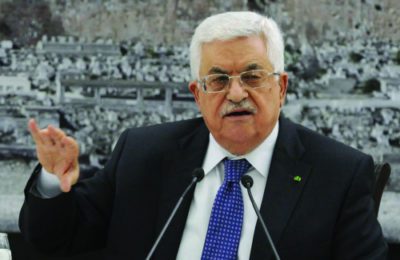 24 hour ceasefire? 72 hour? Indefinite? At long last, after several shorter ones, and long negotiations, it seems that Israel and Hamas have reached a long-term ceasefire agreement. Operation Protective Edge is, for now, over. But many people are questioning how long, in fact, this ceasefire can hold.
24 hour ceasefire? 72 hour? Indefinite? At long last, after several shorter ones, and long negotiations, it seems that Israel and Hamas have reached a long-term ceasefire agreement. Operation Protective Edge is, for now, over. But many people are questioning how long, in fact, this ceasefire can hold.
It boils down to this: Israel has been willing all along, to halt fire and return to the status quo. Hamas, the government ruling the Gaza Strip, want to use the leverage of ending hostilities to gain themselves ground. Their list of demands typically focus on the issues of entry/exit, namely opening border crossings both to Egypt and Israel as well as end to Israel’s naval blockade.
For Israel, meeting these demands is dangerously risky. In its seven years of rule of the Gaza Strip, Hamas’ leaders have made absolutely no overtures toward peace or coexistence with Israel. On the contrary, Hamas continues to iterate its position on non-recognition of an Israeli state and through its broadcasts and media calls for the destruction of the Jewish State. And, of course, Hamas has been happy to use the Gaza Strip as a launchpad for a constant rain of rockets on southern Israel.
None of this even takes in to account third parties, most importantly the Palestinian Authority (PA), Egypt and Iran. The PA wants to see Hamas go thereby enabling them to assert what they believe is their rightful place as leaders of all Palestinians. As such, PA President Mahmoud Abbas is more than happy to wade in, criticizing Israel and/or Hamas, whichever will strengthen his position. From Israel’s point of view, Abbas is the most credible of Palestinian leaders, but still not reliable.
Egypt, in the meantime, has no interest in doing business with Hamas. And while the newly-elected Sisi government has been a key player in ceasefire negotiations, Egypt isn’t keen to re-open the Rafah crossing to Gaza because they’re worried that doing so would only deepen Egypt’s relations to Gaza, something Egypt does not desire. Egypt has no interest in becoming closer to the failing state that is Hamas-led Gaza, especially since Hamas is associated with the Muslim Brotherhood, which led Egypt’s recently overthrown government.
And we can never forget Iran, who are always happy to weigh in on whatever side they believe will most harm Israel. They’ve recently threatened to start meddling in the West Bank by provided potential terrorists there with arms. Keeping in mind Iran’s long-standing financial and military support of the Hamas regime, this newest threat won’t make Israel inclined to open borders between the West Bank and Gaza, which is another one of Hamas’ demands.
So when all is said and done, how likely is it that this ceasefire with in fact be long term? Especially considering that Israel’s number one demand, the demilitarization of Hamas, is anathema to the terrorist group.
Khaled Meshal, Hamas’ Qatar-based leader, has basically promised that Hamas will go back to war with Israel if the truce fails, and it’s hard to see the truce not failing. The only way we could see that not happening is if a coalition of third parties, including influential Arab states, commit to seeing the truce stick. That Arab states would do anything to ensure Israel’s security may seem fantastical, but with radical Islamism a rapidly growing existential threat to the entire Middle East, the time is ripe for the (so-called) moderate Arab states to take a tough stand on Hamas.












